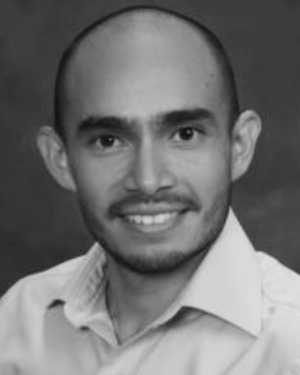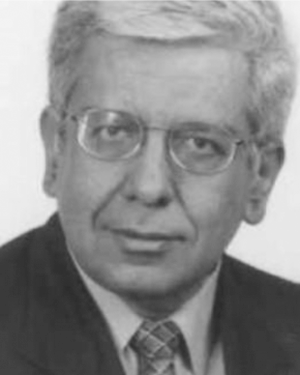Abstract:
In this paper, the multiagent pursuit-evasion (MPE) games are solved in order to obtain optimal strategic policies for all players. In these games, multiple pursuers atte...Show MoreMetadata
Abstract:
In this paper, the multiagent pursuit-evasion (MPE) games are solved in order to obtain optimal strategic policies for all players. In these games, multiple pursuers attempt to intercept multiple evaders who try to avoid capture. A graph-theoretic approach is employed to study the interactions of the agents with limited sensing capabilities, such that distributed control policies are obtained for every agent. Furthermore, the minimization of performance indices associated with the goals of the agents is guaranteed. Nash equilibrium among the players is obtained by means of optimal policies that use the solutions of the Hamilton-Jacobi-Isaacs (HJI) equations of the game. Minmax strategies are also proposed to guarantee a security-level performance when the solutions of the HJI equations for Nash equilibrium do not exist. Scenarios for finite-time capture and for asymptotic rendezvous are analyzed, and emergent behaviors are obtained by means of modifications of the proposed general-case performance indices. The containment control results are shown to be special cases of the solutions of the MPE games.
Published in: IEEE Transactions on Automatic Control ( Volume: 65, Issue: 5, May 2020)
Funding Agency:

Electrical Engineering Department, University of Texas at Arlington, Arlington, USA
Victor G. Lopez (S'17) received the B.S.E.E. degree from the Universidad Autonoma de Campeche, Campeche, Mexico, in 2010, and the M.S.E.E. degree, major in automatic control, from CINVESTAV, Mexico City, Mexico, in 2013. He is currently working toward the Ph.D. degree in automatic control at the University of Texas at Arlington, Arlington, TX, USA.
He was a Lecturer with the Western Technologic Institute of Superior Studie...Show More
Victor G. Lopez (S'17) received the B.S.E.E. degree from the Universidad Autonoma de Campeche, Campeche, Mexico, in 2010, and the M.S.E.E. degree, major in automatic control, from CINVESTAV, Mexico City, Mexico, in 2013. He is currently working toward the Ph.D. degree in automatic control at the University of Texas at Arlington, Arlington, TX, USA.
He was a Lecturer with the Western Technologic Institute of Superior Studie...View more

UTA Research Institute, University of Texas at Arlington, Fort Worth, USA
Frank L. Lewis (F'81) received the bachelor's degree in physics/electrical engineering and the M.S.E.E. degree from Rice University, Houston, TX, USA, in 1971, the M.S. degree in aeronautical engineering from the University of West Florida, Pensacola, FL, USA, in 1977, and the Ph.D. degree from Georgia Institute of Technology, Atlanta, GA, USA, in 1981.
He holds 7 U.S. patents, and has authored numerous journal special iss...Show More
Frank L. Lewis (F'81) received the bachelor's degree in physics/electrical engineering and the M.S.E.E. degree from Rice University, Houston, TX, USA, in 1971, the M.S. degree in aeronautical engineering from the University of West Florida, Pensacola, FL, USA, in 1977, and the Ph.D. degree from Georgia Institute of Technology, Atlanta, GA, USA, in 1981.
He holds 7 U.S. patents, and has authored numerous journal special iss...View more

Electrical Engineering Department, University of Texas at Arlington, Arlington, USA
Yan Wan (SM'17) received the Ph.D. degree in electrical engineering from Washington State University, Pullman, WA, USA, in 2008, and then did postdoctoral training at the University of California, Santa Barbara, CA, USA.
She is currently an Associate Professor with the Electrical Engineering Department, University of Texas at Arlington, Arlington, TX, USA. From 2009 to 2016, she was an Assistant Professor and then an Assoc...Show More
Yan Wan (SM'17) received the Ph.D. degree in electrical engineering from Washington State University, Pullman, WA, USA, in 2008, and then did postdoctoral training at the University of California, Santa Barbara, CA, USA.
She is currently an Associate Professor with the Electrical Engineering Department, University of Texas at Arlington, Arlington, TX, USA. From 2009 to 2016, she was an Assistant Professor and then an Assoc...View more

CINVESTAV Unidad Guadalajara, Guadalajara, Mexico
Edgar N. Sanchez (SM'93) received the B.S.E.E. degree, major in power systems, from Universidad Industrial de Santander, Bucaramanga, Santander, Colombia, in 1971, the M.S.E.E. degree, major in automatic control, from CINVESTAV-IPN, Mexico City, Mexico, in 1974, and the Dr. Ing. degree in automatic control from Institut Nationale Polytechnique de Grenoble, Grenoble, France, in 1980.
From 1971 to 1976, he was with different...Show More
Edgar N. Sanchez (SM'93) received the B.S.E.E. degree, major in power systems, from Universidad Industrial de Santander, Bucaramanga, Santander, Colombia, in 1971, the M.S.E.E. degree, major in automatic control, from CINVESTAV-IPN, Mexico City, Mexico, in 1974, and the Dr. Ing. degree in automatic control from Institut Nationale Polytechnique de Grenoble, Grenoble, France, in 1980.
From 1971 to 1976, he was with different...View more

School of Electronic and Information Engineering, Beijing Jiaotong University, Beijing, China
Lingling Fan received the Ph.D. degree from the Beijing Jiaotong University, Beijing, China, in 2017.
She is currently a Lecturer with the School of Automation, Beijing Information Science and Technology University, Beijing, China. Her research interests include multiagent systems, pursuit-evasion, and data-driven control.
Lingling Fan received the Ph.D. degree from the Beijing Jiaotong University, Beijing, China, in 2017.
She is currently a Lecturer with the School of Automation, Beijing Information Science and Technology University, Beijing, China. Her research interests include multiagent systems, pursuit-evasion, and data-driven control.View more

Electrical Engineering Department, University of Texas at Arlington, Arlington, USA
Victor G. Lopez (S'17) received the B.S.E.E. degree from the Universidad Autonoma de Campeche, Campeche, Mexico, in 2010, and the M.S.E.E. degree, major in automatic control, from CINVESTAV, Mexico City, Mexico, in 2013. He is currently working toward the Ph.D. degree in automatic control at the University of Texas at Arlington, Arlington, TX, USA.
He was a Lecturer with the Western Technologic Institute of Superior Studies, Guadalajara, Mexico, in 2015. His research interests include cyber-physical systems, graphical games, distributed control, reinforcement learning, and robust control.
Victor G. Lopez (S'17) received the B.S.E.E. degree from the Universidad Autonoma de Campeche, Campeche, Mexico, in 2010, and the M.S.E.E. degree, major in automatic control, from CINVESTAV, Mexico City, Mexico, in 2013. He is currently working toward the Ph.D. degree in automatic control at the University of Texas at Arlington, Arlington, TX, USA.
He was a Lecturer with the Western Technologic Institute of Superior Studies, Guadalajara, Mexico, in 2015. His research interests include cyber-physical systems, graphical games, distributed control, reinforcement learning, and robust control.View more

UTA Research Institute, University of Texas at Arlington, Fort Worth, USA
Frank L. Lewis (F'81) received the bachelor's degree in physics/electrical engineering and the M.S.E.E. degree from Rice University, Houston, TX, USA, in 1971, the M.S. degree in aeronautical engineering from the University of West Florida, Pensacola, FL, USA, in 1977, and the Ph.D. degree from Georgia Institute of Technology, Atlanta, GA, USA, in 1981.
He holds 7 U.S. patents, and has authored numerous journal special issues, 374 journal papers, and 20 books, some of which are used as university textbooks worldwide. His research interests include feedback control, intelligent systems, cooperative control systems, and nonlinear systems.
Dr. Lewis was the recipient of the Fulbright Research Award, NSF Research Initiation Grant, ASEE Terman Award, International Neural Network Society Gabor Award, U.K. Institute of Measurement & Control Honeywell Field Engineering Medal, IEEE Computational Intelligence Society Neural Networks Pioneer Award, AIAA Intelligent Systems Award, Outstanding Service Award from Dallas IEEE Section, and Texas Regents Outstanding Teaching Award for 2013. He was selected as Engineer of the Year by Fort Worth IEEE Section and listed in Fort Worth Business Press Top 200 Leaders in Manufacturing. He was the Founding Member of the Board of Governors of the Mediterranean Control Association, member of the National Academy of Inventors, Fellow of IFAC, Fellow of AAAS, Fellow of U.K. Institute of Measurement & Control, PE Texas, U.K. Chartered Engineer, UTA Distinguished Scholar Professor, UTA Distinguished Teaching Professor, and Moncrief-O'Donnell Chair at the University of Texas at Arlington Research Institute.
Frank L. Lewis (F'81) received the bachelor's degree in physics/electrical engineering and the M.S.E.E. degree from Rice University, Houston, TX, USA, in 1971, the M.S. degree in aeronautical engineering from the University of West Florida, Pensacola, FL, USA, in 1977, and the Ph.D. degree from Georgia Institute of Technology, Atlanta, GA, USA, in 1981.
He holds 7 U.S. patents, and has authored numerous journal special issues, 374 journal papers, and 20 books, some of which are used as university textbooks worldwide. His research interests include feedback control, intelligent systems, cooperative control systems, and nonlinear systems.
Dr. Lewis was the recipient of the Fulbright Research Award, NSF Research Initiation Grant, ASEE Terman Award, International Neural Network Society Gabor Award, U.K. Institute of Measurement & Control Honeywell Field Engineering Medal, IEEE Computational Intelligence Society Neural Networks Pioneer Award, AIAA Intelligent Systems Award, Outstanding Service Award from Dallas IEEE Section, and Texas Regents Outstanding Teaching Award for 2013. He was selected as Engineer of the Year by Fort Worth IEEE Section and listed in Fort Worth Business Press Top 200 Leaders in Manufacturing. He was the Founding Member of the Board of Governors of the Mediterranean Control Association, member of the National Academy of Inventors, Fellow of IFAC, Fellow of AAAS, Fellow of U.K. Institute of Measurement & Control, PE Texas, U.K. Chartered Engineer, UTA Distinguished Scholar Professor, UTA Distinguished Teaching Professor, and Moncrief-O'Donnell Chair at the University of Texas at Arlington Research Institute.View more

Electrical Engineering Department, University of Texas at Arlington, Arlington, USA
Yan Wan (SM'17) received the Ph.D. degree in electrical engineering from Washington State University, Pullman, WA, USA, in 2008, and then did postdoctoral training at the University of California, Santa Barbara, CA, USA.
She is currently an Associate Professor with the Electrical Engineering Department, University of Texas at Arlington, Arlington, TX, USA. From 2009 to 2016, she was an Assistant Professor and then an Associate Professor with the University of North Texas. She has authored or coauthored more than 130 publications and her research has led to successful technology transfer outcomes. Her research interests include the modeling, evaluation, and control of large-scale dynamical networks, cyber-physical system, stochastic networks, decentralized control, learning control, networking, uncertainty analysis, algebraic graph theory, and their applications to UAV networking, UAV traffic management, epidemic spread, complex information networks, and air traffic management.
Dr. Wan was the recipient of several prestigious awards, including the NSF CAREER Award, RTCA William E. Jackson Award, U.S. Ignite and GENI demonstration awards, IEEE WCNC Best Paper Award, UNT Early Career Award for Research and Creativity, and Tech Titan of the Future—University Level Award. She is currently the Vice President of IEEE ComSoc Fort Worth Chapter and Technical Committee Member of AIAA Intelligent Systems Society. She is also the Associate Editor for the Transactions of the Institute of Measurement and Control.
Yan Wan (SM'17) received the Ph.D. degree in electrical engineering from Washington State University, Pullman, WA, USA, in 2008, and then did postdoctoral training at the University of California, Santa Barbara, CA, USA.
She is currently an Associate Professor with the Electrical Engineering Department, University of Texas at Arlington, Arlington, TX, USA. From 2009 to 2016, she was an Assistant Professor and then an Associate Professor with the University of North Texas. She has authored or coauthored more than 130 publications and her research has led to successful technology transfer outcomes. Her research interests include the modeling, evaluation, and control of large-scale dynamical networks, cyber-physical system, stochastic networks, decentralized control, learning control, networking, uncertainty analysis, algebraic graph theory, and their applications to UAV networking, UAV traffic management, epidemic spread, complex information networks, and air traffic management.
Dr. Wan was the recipient of several prestigious awards, including the NSF CAREER Award, RTCA William E. Jackson Award, U.S. Ignite and GENI demonstration awards, IEEE WCNC Best Paper Award, UNT Early Career Award for Research and Creativity, and Tech Titan of the Future—University Level Award. She is currently the Vice President of IEEE ComSoc Fort Worth Chapter and Technical Committee Member of AIAA Intelligent Systems Society. She is also the Associate Editor for the Transactions of the Institute of Measurement and Control.View more

CINVESTAV Unidad Guadalajara, Guadalajara, Mexico
Edgar N. Sanchez (SM'93) received the B.S.E.E. degree, major in power systems, from Universidad Industrial de Santander, Bucaramanga, Santander, Colombia, in 1971, the M.S.E.E. degree, major in automatic control, from CINVESTAV-IPN, Mexico City, Mexico, in 1974, and the Dr. Ing. degree in automatic control from Institut Nationale Polytechnique de Grenoble, Grenoble, France, in 1980.
From 1971 to 1976, he was with different electrical engineering consulting companies in Bogota, Colombia. From January 1981 to November 1990, he was a Researcher with the Electrical Research Institute, Cuernavaca, Mexico. He was a Professor of Electrical Engineering graduate program, Universidad Autonoma de Nuevo Leon, Monterrey, Mexico, from December 1990 to December 1996. Since January 1997, he has been with CINVESTAV-IPN, Guadalajara, Mexico, as a Professor of Electrical Engineering graduate program. He has authored or coauthored 7 books and more than 150 technical papers in international journals and conferences. His research interests include neural networks and fuzzy logic as applied to automatic control systems.
Dr. Sanchez was the recipient of the USA National Research Council Award as a Research Associate with NASA Langley Research Center, Hampton, VA, USA (January 1985 to March 1987). He is also member of the Mexican National Research System (promoted to highest rank, III, in 2005), the Mexican Academy of Sciences, and the Mexican Academy of Engineering. He was also member of many international conferences (IPCs), both IEEE and IFAC ones.
Edgar N. Sanchez (SM'93) received the B.S.E.E. degree, major in power systems, from Universidad Industrial de Santander, Bucaramanga, Santander, Colombia, in 1971, the M.S.E.E. degree, major in automatic control, from CINVESTAV-IPN, Mexico City, Mexico, in 1974, and the Dr. Ing. degree in automatic control from Institut Nationale Polytechnique de Grenoble, Grenoble, France, in 1980.
From 1971 to 1976, he was with different electrical engineering consulting companies in Bogota, Colombia. From January 1981 to November 1990, he was a Researcher with the Electrical Research Institute, Cuernavaca, Mexico. He was a Professor of Electrical Engineering graduate program, Universidad Autonoma de Nuevo Leon, Monterrey, Mexico, from December 1990 to December 1996. Since January 1997, he has been with CINVESTAV-IPN, Guadalajara, Mexico, as a Professor of Electrical Engineering graduate program. He has authored or coauthored 7 books and more than 150 technical papers in international journals and conferences. His research interests include neural networks and fuzzy logic as applied to automatic control systems.
Dr. Sanchez was the recipient of the USA National Research Council Award as a Research Associate with NASA Langley Research Center, Hampton, VA, USA (January 1985 to March 1987). He is also member of the Mexican National Research System (promoted to highest rank, III, in 2005), the Mexican Academy of Sciences, and the Mexican Academy of Engineering. He was also member of many international conferences (IPCs), both IEEE and IFAC ones.View more

School of Electronic and Information Engineering, Beijing Jiaotong University, Beijing, China
Lingling Fan received the Ph.D. degree from the Beijing Jiaotong University, Beijing, China, in 2017.
She is currently a Lecturer with the School of Automation, Beijing Information Science and Technology University, Beijing, China. Her research interests include multiagent systems, pursuit-evasion, and data-driven control.
Lingling Fan received the Ph.D. degree from the Beijing Jiaotong University, Beijing, China, in 2017.
She is currently a Lecturer with the School of Automation, Beijing Information Science and Technology University, Beijing, China. Her research interests include multiagent systems, pursuit-evasion, and data-driven control.View more


